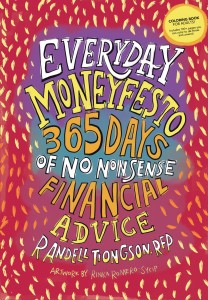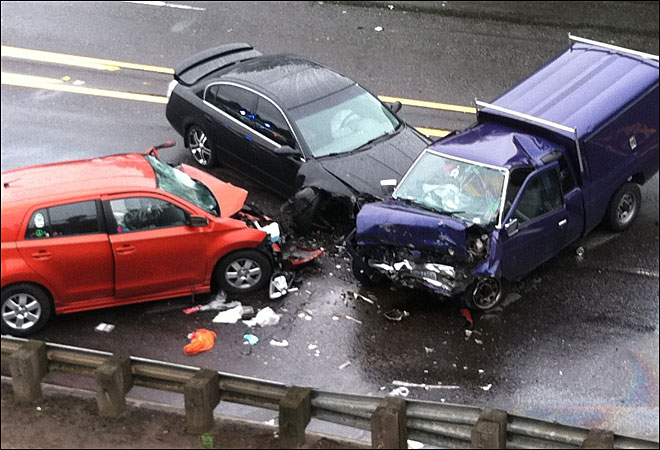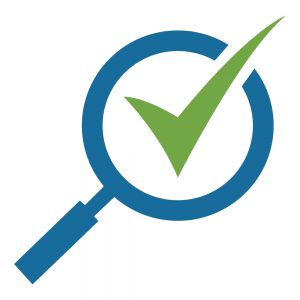10 Money Principles Kids Should Learn
By Randell Tiongson on February 8th, 2016
Albert Einstein and personal finance – the two are rarely used in the same sentence. But the man behind the theory of relativity said one of the most basic yet essential quotes when it comes to money – “Compound interest is the 8th wonder of the world. He who understands it, earns it; he who doesn’t, pays it.” Well, it isn’t really clear if Albert Einstein actually said it but compounding interest is really a cool thing.
Compound interest is interest added on interest. A 10% yearly interest on Php 100 is not Php 10 every year. This is because of compound interest. In the second year, the Php 100 grows to Php 110 and 10% of that is Php 11. When it comes to finances, the earlier you start saving and investing, the higher the potential of compound interest because of the longer timeline. This means younger folks have, if they start saving and investing early, the upper hand when it comes to finances. This is where parents come in.
Personal finance, even just the basics, should be taught to kids and teenagers. To make this more fun, you can give bonuses and incentives from time to time, such as doubling the amount of money your kids save in X months or giving your teenagers a stock market challenge where the one with the most profits earns a prize.
Aside from compound interest, what are other money principles kids should learn? Look no further. MoneyMax.ph, a Philippine comparison portal for financial products such as loans and credit cards, created an infographic on 10 money principles kids should learn:

From creating proper money habits to practicing both saving and earning, the 10 principles above are sure to give your children a head-start when it comes to their finances. The earlier your kids start, the more time they have to learn, practice, and live the above-mentioned lessons for a healthier financial life for both them and you, as their parents.
To share what we do, my wife and I have been teaching our kids 3 basic money principles whenever they get some money: SAVE, SPEND, GIVE — principles that are truly important life skills for them to have.
Let us teach our children be wise, to love others and most importantly to love God and they will be set for life.
Train up a child in the way he should go; even when he is old he will not depart from it. (Proverbs 22:6, ESV)
—————–
Get a copy of my inspiring book and be encourage with your journey towards financial freedom!

Everyday Moneyfesto: 365 Days of No Nonsense Financial Advice is a unique book that focuses on financial wisdom. It is a book that will guide you, motivate you and inspire you on a daily basis to help you achieve financial peace.
Other than my daily advices, the book also shares the financial wisdom from the biggest names like Francis Kong, Bo Sanchez, Marvin Germo, Efren Cruz, Chinkee Tan, Coney Reyes, Miriam Quiambao, Rex Mendoza, Ardy Abello, Edric Mendoza, Salve Duplito, Alvin Ang, Dennis Sy, Jayson Lo and many more!
This is a unique book where you can also show your creativity with over 100 pages which you may want to color, featuring artwork by Rinka Romero-Sycip.
Be one of the first to get a copy of this life-changing and empowering book for only P300.00 per book (compact edition) and for a limited period, shipping is for free for Metro Manila orders. For provincial orders, please add P100.00.
To order, follow these easy steps:
- Deposit payment to BPI 0249-1113-09 under John Randell Tiongson
- Send a photo of the deposit slip to [email protected] along with your complete address and contact number.
- Wait for your book/s in a couple of days.
Do we really need car insurance?
By Randell Tiongson on August 8th, 2015
Question: My wife and I just bought our first car and we need help choosing the right car insurance. Is the basic CPTL insurance offered by the LTO enough? Or is it worth buying a comprehensive car insurance? If we choose the latter, what are the things we should be looking out for? –John Santos via Facebook
Answer: Congratulations on the new car! It’s natural to feel unsure and overwhelmed when buying car insurance for the first time. Let me guide you through the process.
 When you register your car with the Land Transportation Office, you are required by law to get basic Compulsory Third Party Liability (CTPL) car insurance to protect against possible liabilities to third parties. According to the Insurance Code of the Philippines, a third party is defined as any person other than a passenger, family member, or household member of the vehicle owner.
When you register your car with the Land Transportation Office, you are required by law to get basic Compulsory Third Party Liability (CTPL) car insurance to protect against possible liabilities to third parties. According to the Insurance Code of the Philippines, a third party is defined as any person other than a passenger, family member, or household member of the vehicle owner.
In other words, CTPL protects pedestrians from potential damages or injuries that arise from the use of the insured car. This is compulsory and covers any bodily injuries or deaths caused for of up to P100,000. However, CTPL does not cover loss or damages to property, and is very limited in this regard.
Many non-life insurance providers also provide comprehensive car insurance. Essentially, comprehensive car insurance has a wide coverage and insures you against damage, car theft, liabilities caused by collisions, fire, malicious acts, acts of God (and nature) and personal accident insurance of the passenger. While this is not mandatory, it provides some measure of financial security by covering car repairs and other damages should any unfortunate incidents occur.
It’s smart to get this type of insurance because risk is an everyday reality. Accidents can happen to you anytime, and if you’re driving to work every day, you’re exposed to risks that you do not have direct control of.
To illustrate, EDSA accommodates more than two million vehicles on a daily basis. If you take Edsa to work, you’re exposed to more than 27,000 public utility buses that figure in the worst traffic accidents.
Another good reason to get comprehensive car insurance is the fact that the Philippines endures an average of nine tropical storms in a year. It’s like saying your car is at major risk at least nine times in a year! I have a lot of friends who had damaged cars during the worst flooding in Manila. Those who had Acts of God or Acts of Nature in their policy were well-taken care of by their insurance providers.
If any of these unfortunate incidents makes your car inoperable, comprehensive insurance picks up the tab for repairs and does all the legwork for you. So instead of doing the paperwork and trying to get them stamped at one government office after another, the insurance company will take care of all this. Depending on your coverage, they’ll even foot the hospital bills in case any passengers got injured in the accident.
When getting your car insurance, make sure that you read the fine print and understand what’s included and what isn’t. Many “comprehensive” insurance policies don’t insure against all types of damages, like riots or typhoons. Coverage for these instances will require additional clauses:
Acts of God or Acts of Nature covers damage from flooding and other non-manmade incidents
Personal Accident provides a small amount for any injuries sustained during a road accident
Medical Reimbursement lets you reimburse medical expenses from injuries related to the accident
Other add-ons include riot (for protest or riot-related damage), upgrade (for upgraded car equipment), roadside repairs and towing
Before including these add-ons to your coverage, determine how and where you use your car. For example, if you live in a flood-prone neighborhood, the Acts of God clause is worth paying for. If you drive to work daily, it’s safe to include the Personal Accident or Medical Reimbursement additions.
Get to know the top car insurance providers in the Philippines and see what coverage they have to offer. As a shortcut to your research, there are several websites offering comparisons among the car insurance packages of various providers. A good comparative website you can use is Moneymax.
These websites will give you quotes from four or more companies, and do a side-by-side comparison. This makes it easier for you to analyze your options and make your choice based on price and your own needs.
Make sure that you compare premiums fairly and objectively before making your final choice. Some insurance companies may offer very low rates, but the claiming process can be difficult.
Ask your friends which providers they are using and find out how easy or difficult the claims process was. Personally, I don’t mind paying a few pesos more if my insurance provider rescues me during my time of need.
Be safe, be secured.
Why Price Comparison Sites are the Future
By Randell Tiongson on May 26th, 2015
MasterCard recently released the results of its Financial Literacy Index, a research-based report that examines levels of financial know-how in the Asia Pacific region. They found that financial literacy actually declined across the region. The Philippines was awarded 66 in the area of Basic Money Management; a score of less than 70 is considered an issue.
in the Asia Pacific region. They found that financial literacy actually declined across the region. The Philippines was awarded 66 in the area of Basic Money Management; a score of less than 70 is considered an issue.
Improve Your Financial I.Q.
While some Filipinos understand everyday concepts like budgeting and saving, many are confused by the technicalities of finding the best car insurance or credit card deals. Personal finance comparison sites can fill in those knowledge gaps. They empower buyers to compare and make financial decisions based on their own knowledge – and that knowledge is bolstered by information and help options that can educate them on various concepts.
Saving Time & Money
The rise in popularity of these websites corresponds to the overall rise internet use. It makes sense; what used to take hours or perhaps even days to call various companies and wait to hear back with a quote can now be accomplished in minutes just by using a single price comparison website. And – people aren’t left with that nagging feeling that there was a better deal out there waiting to be had.
Growth in Southeast Asia
While the phenomenon has been noted globally, it’s perhaps in Southeast Asia that both the rise and the potential for financial comparison sites are greatest. The growth of internet use in Southeast Asia has been phenomenal, with 194 million new internet users between 2010 and 2020 between Singapore, Malaysia, Thailand, Indonesia, the Philippines and Vietnam.
Internet use is high even among low income citizens of the Philippines, typically in the form of mobile telephony and not via a stand-alone computer. Fully 90 percent of users engage with blogs and social media and internet banking use is roughly on a par with the rest of the world. As they’ve adopted the digital lifestyle, price comparison shopping for everything from dresses in the shopping mall to car insurance has been on the rise too. The market has responded with a flood of price comparison sites and start-ups over the last two years.
Peace of Mind
 Along with getting the best price and options, visitors can be assured of the accuracy of the information they’re getting. Growing sites like MoneyMax.ph offer comparison pricing for car insurance and other financial products along with options that explain financial concepts in everyday language. This helps close the gap in financial literacy with price transparency and consumer choice.
Along with getting the best price and options, visitors can be assured of the accuracy of the information they’re getting. Growing sites like MoneyMax.ph offer comparison pricing for car insurance and other financial products along with options that explain financial concepts in everyday language. This helps close the gap in financial literacy with price transparency and consumer choice.
Across the globe, financial institutions and even government players are sitting up and taking notice of the enormous rise in the use of these websites. Soon, having to call individual banks and companies to find the best deal will be a practice of the past. Through these websites, Filipinos have quick access to all this information, and become empowered to make choices that are right for them.






